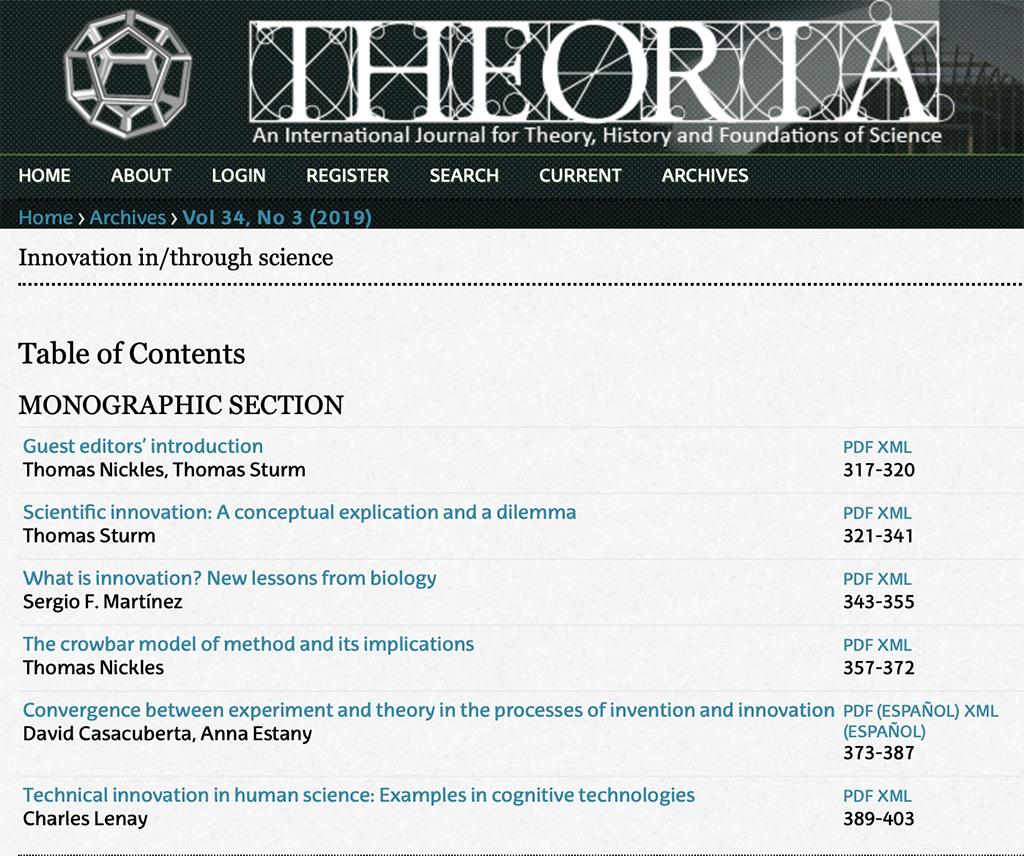Scientists are often asked to promote innovation and aid society by, for instance, novel drugs and therapies, means of communication, ways of making technical devices more energy efficient, or methods for teaching mathematics to schoolchildren. Increasingly, they are also invited (if not urged) to innovate science itself. Universities, grant agencies, and governments encourage researchers to devise novel questions, methods, concepts, theories, goals, instruments, and even research institutions. But while the terminology of innovation is widely used, all too often this is rhetorical rather than reflective. The article aims to foster philosophical debate concerning scientific innovation. As with innovations in markets, we can usefully view scientific innovation as one stage within a larger process from invention to diffusion; more specifically, innovation is a consequence of those inventions that are recognized as useful for changing research in non-incremental ways. However, unlike ‘discovery’, ‘innovation’ applies to elements that make possible, but do not by themselves establish or guarantee, correct research outputs. Most importantly, we assume that innovations are deliberately prepared and accepted, given that they imply violations or revisions of established rules of science. In this sense, innovation presupposes at least minimal rationality. This, however, leads to a tension between two plausible claims: (1) scientific innovation can be explained rationally; (2) no existing account of rationality explains scientific innovation. In particular, I argue that neither standard nor bounded theories of rationality can deliver a satisfactory explanation of scientific innovations. At the moment, it is unclear with what to replace them. Thus, despite our legitimate interest in scientific innovation, calls for research proposals and submissions should be formulated in more reflective and careful ways; and we should not be excessively optimistic concerning our ability to rationally predict and steer the future direction of the scientific enterprise.
Reference
